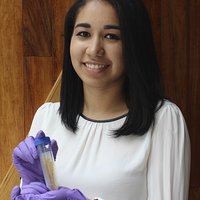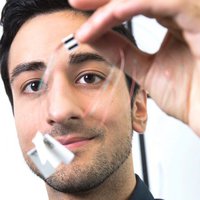Snakebites provoke at least 100,000 fatalities each year, and there are three times as many cases which require amputation or lead to permanent disabilities, according to the World Health Organization. Yet the countries in which snakebites are common tend to lack adequate regulations quality controls for antivenoms. Although antidotes have long existed and are very effective at neutralizing the effects of snakebites, they are expensive and can include a wide array of side effects due to the fact that they are derived from animal antibodies. For this reason, the engineer and entrepreneur Andreas Laustsen is designing antivenoms based on human antibodies, which are compatible with the human immune system and therefore eliminate the risk of side effects. Thanks to his research, he has been named as one of MIT Technology Review, Spanish Edition's Innovators Under 35 Europe 2017.
Through his biotech start-up, VenomAb, Laustsen is developing the first snake venom antidote based entirely on human antibodies. This antidote will be capable of attacking the key toxins present in the venom directly without negatively impacting the immune system through the use of animal antibodies, which can provoke allergic reactions or even lead to renal insufficiency or death.
Laustsen explains that producing this type of antivenoms for the complete range of species would in effect represent “an antivenom revolution.” Not only would it eliminate the possibility of experiencing adverse reactions, it would make a cure available to low-resource victims by avoiding the production costs generated by the need to maintain live animals, like horses. Once the antibodies were created, it would only be necessary to ferment them, which would undoubtedly make their production more economical.
VenomAb performs their research through the Technical University of Denmark a research group baptized as the Tropical Pharmacology Lab. Although the project has thus far concentrated on species which are found in sub-Saharan Africa, the team is also studying venoms from places like India and southern Asia. This young innovator also considers it important to create all-purpose regional antivenoms capable of treating bites from the most medically threatening species of snakes, since it is not always possible to identify the type of venom associated with a bite. VenomAb could represent an important step towards saving the lives of thousands of victims of snakebites, especially those who work in rural areas where the probability of suffering an accident is high, and the possibility of receiving treatment is low.
The co-founder and chief executive of Vedanta Biosciences and jury member for Innovators Under 35 Europe 2017, Bernat Ollé, points out that Laustens is tackling a problem which, though important, has been ignored by the biotechnology industry due to the low probability of opening up lucrative new markets. He explains that this project may “disproportionately benefit” some of the poorest and remotest regions in the world.
By Rut Sánchez
Translation: Teresa Woods




